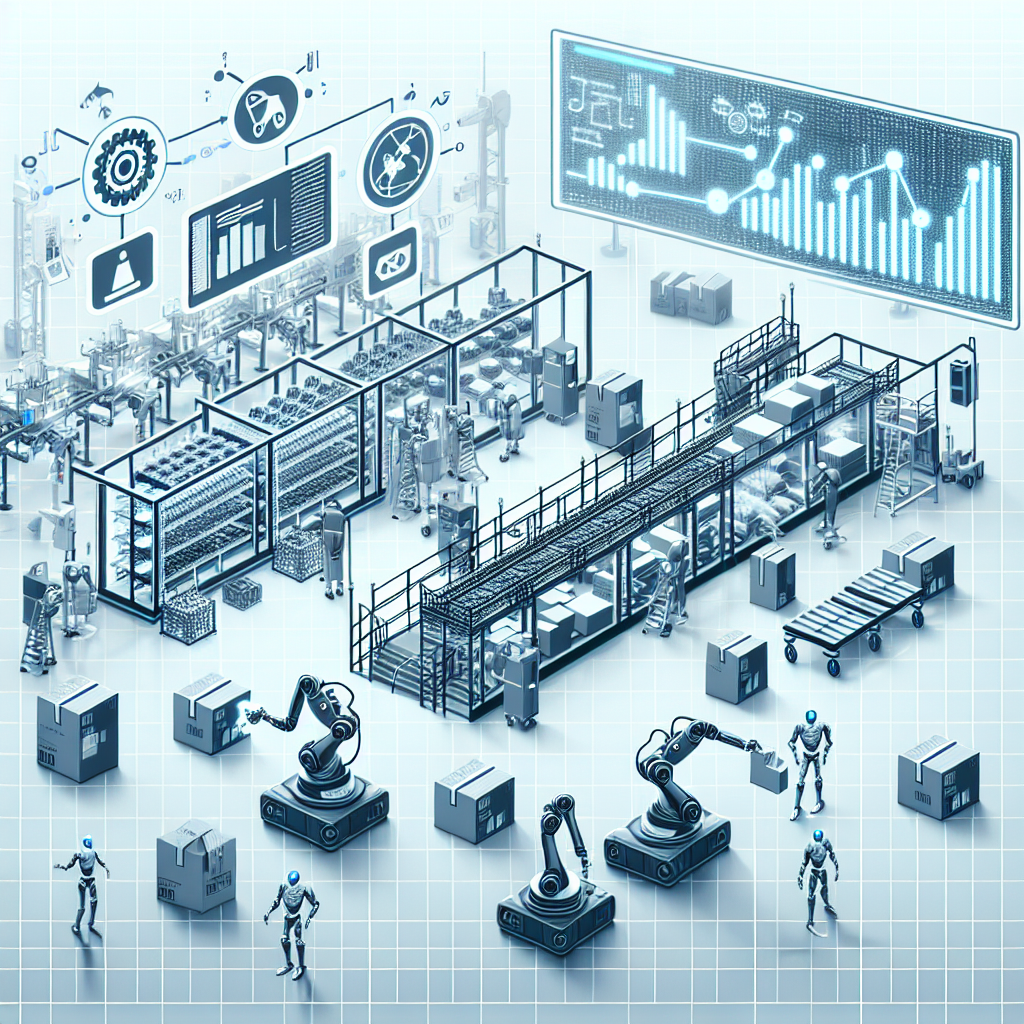In today’s fast-paced manufacturing environment, inventory management is a critical aspect of ensuring smooth operations and efficient production. With the advent of artificial intelligence (AI) technology, inventory management in manufacturing has been revolutionized, allowing businesses to optimize their supply chains, reduce costs, and improve overall efficiency.
AI-driven inventory management utilizes advanced algorithms and machine learning models to analyze data, predict demand, and make real-time decisions about inventory levels. By harnessing the power of AI, manufacturers can gain valuable insights into their supply chains, streamline their operations, and minimize the risk of stockouts and overstocking.
One of the key benefits of AI-driven inventory management is the ability to forecast demand accurately. By analyzing historical sales data, market trends, and other relevant factors, AI algorithms can predict future demand patterns with a high degree of accuracy. This allows manufacturers to optimize their inventory levels, reduce excess inventory, and minimize the risk of stockouts.
AI-driven inventory management also enables manufacturers to automate the replenishment process. By setting up automated triggers based on predefined thresholds, AI systems can automatically reorder inventory when stock levels reach a certain point. This helps to streamline the procurement process, reduce the risk of human error, and ensure that inventory levels are always optimized.
In addition, AI-driven inventory management can help manufacturers optimize their warehouse operations. By analyzing data on order volume, order frequency, and other factors, AI algorithms can recommend the most efficient warehouse layout, pick paths, and storage locations. This can help manufacturers reduce picking and packing times, improve order accuracy, and streamline their overall operations.
Furthermore, AI-driven inventory management can help manufacturers identify and mitigate supply chain risks. By analyzing data on supplier performance, lead times, and other factors, AI algorithms can identify potential bottlenecks and vulnerabilities in the supply chain. This allows manufacturers to proactively address issues before they impact production, reduce the risk of disruptions, and ensure continuity of operations.
Overall, AI-driven inventory management offers a wide range of benefits for manufacturers, including improved demand forecasting, automated replenishment, optimized warehouse operations, and enhanced supply chain visibility. By leveraging the power of AI technology, manufacturers can streamline their operations, reduce costs, and improve overall efficiency.
FAQs:
Q: How can AI-driven inventory management help manufacturers reduce costs?
A: AI-driven inventory management can help manufacturers reduce costs by optimizing inventory levels, automating the replenishment process, and streamlining warehouse operations. By accurately forecasting demand and automating procurement decisions, manufacturers can minimize excess inventory, reduce carrying costs, and improve overall efficiency.
Q: What are the key challenges of implementing AI-driven inventory management in manufacturing?
A: One of the key challenges of implementing AI-driven inventory management in manufacturing is the need for high-quality data. AI algorithms require vast amounts of data to generate accurate forecasts and recommendations, so it is essential for manufacturers to have robust data collection and management systems in place. Additionally, manufacturers may face resistance from employees who are hesitant to adopt AI technology or fear that it will replace their jobs.
Q: How can manufacturers measure the success of their AI-driven inventory management system?
A: Manufacturers can measure the success of their AI-driven inventory management system by tracking key performance indicators (KPIs) such as inventory turnover, stockout rates, order accuracy, and warehouse efficiency. By comparing these metrics before and after implementing AI technology, manufacturers can assess the impact of AI on their operations and identify areas for improvement.
Q: What are the potential risks of relying too heavily on AI-driven inventory management?
A: One potential risk of relying too heavily on AI-driven inventory management is the possibility of system errors or malfunctions. If AI algorithms make incorrect predictions or recommendations, it could lead to stockouts, overstocking, or other issues that could disrupt production. Additionally, manufacturers may become overly reliant on AI technology and neglect human judgment and expertise, which could limit their ability to respond to unexpected events or changes in the market.
In conclusion, AI-driven inventory management is a game-changer for manufacturers looking to optimize their supply chains, reduce costs, and improve overall efficiency. By harnessing the power of AI technology, manufacturers can gain valuable insights into their operations, streamline their processes, and enhance their competitive advantage in the marketplace. With the right strategy and implementation, AI-driven inventory management can transform manufacturing operations and drive sustainable growth for businesses in the digital age.

